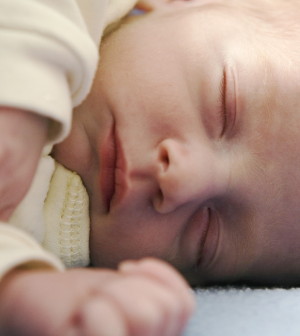- Double Mastectomy May Offer No Survival Benefit to Women With Breast Cancer
- Toxic Lead Found in Cinnamon Product, FDA Says
- Certain Abbott Blood Sugar Monitors May Give Incorrect Readings
- Athletes Can Expect High Ozone, Pollen Counts for Paris Olympics
- Fake Oxycontin Pills Widespread and Potentially Deadly: Report
- Shingles Vaccine Could Lower Dementia Risk
- Your Odds for Accidental Gun Death Rise Greatly in Certain States
- Kids From Poorer Families Less Likely to Survive Cancer
- Tough Workouts Won’t Trigger Cardiac Arrest in Folks With Long QT Syndrome
- At-Home Colon Cancer Test Can Save Lives
C-Section May Raise Odds of Failed Pregnancy Later: Study


A cesarean delivery might put women at a slightly increased risk for ectopic pregnancy and stillbirth in future pregnancies, a new study finds.
However, the risk for either complication is still very low, researchers said.
The researchers analyzed data from nearly 833,000 first-time mothers in Denmark. Those whose baby was delivered by cesarean section had a 14 percent higher rate of stillbirth in their next pregnancy than those who had a vaginal delivery. A stillbirth is described as the death of a fetus at more than 20 weeks of gestation.
That works out to an absolute risk increase of 0.03 percent. That means that for every 3,000 cesarean deliveries, there would be one extra stillbirth in future pregnancies, the researchers explained.
They also found that women who had a cesarean delivery for their first baby were 9 percent more likely to have a future ectopic pregnancy than those who had a vaginal delivery.
That’s an absolute increased risk of 0.1 percent, which means that for every 1,000 cesarean deliveries, there would be one extra ectopic pregnancy in future pregnancies.
In an ectopic pregnancy, the fertilized egg grows in the fallopian tubes or other locations outside the uterus. It typically results in loss of the fetus and can be fatal for the mother.
Having a cesarean delivery for a first baby did not increase women’s risk of miscarriage in future pregnancies, according to the researchers at University College Cork in Ireland and Aarhus University in Denmark. A miscarriage is generally described as the spontaneous loss of a fetus before 20 weeks of pregnancy.
The study appears in the July 1 issue of the journal PLoS Medicine.
“The findings of the current study are particularly important for expectant mothers as well as health care professionals as cesarean section rates are increasing significantly worldwide,” study author Louise Kenny said in a journal news release.
While the study finds an association between c-sections and failed pregnancies, it does not prove a direct cause-and-effect relationship.
More information
The U.S. National Institute of Child Health and Human Development has more about cesarean delivery.
Source: HealthDay
Copyright © 2024 HealthDay. All rights reserved.










